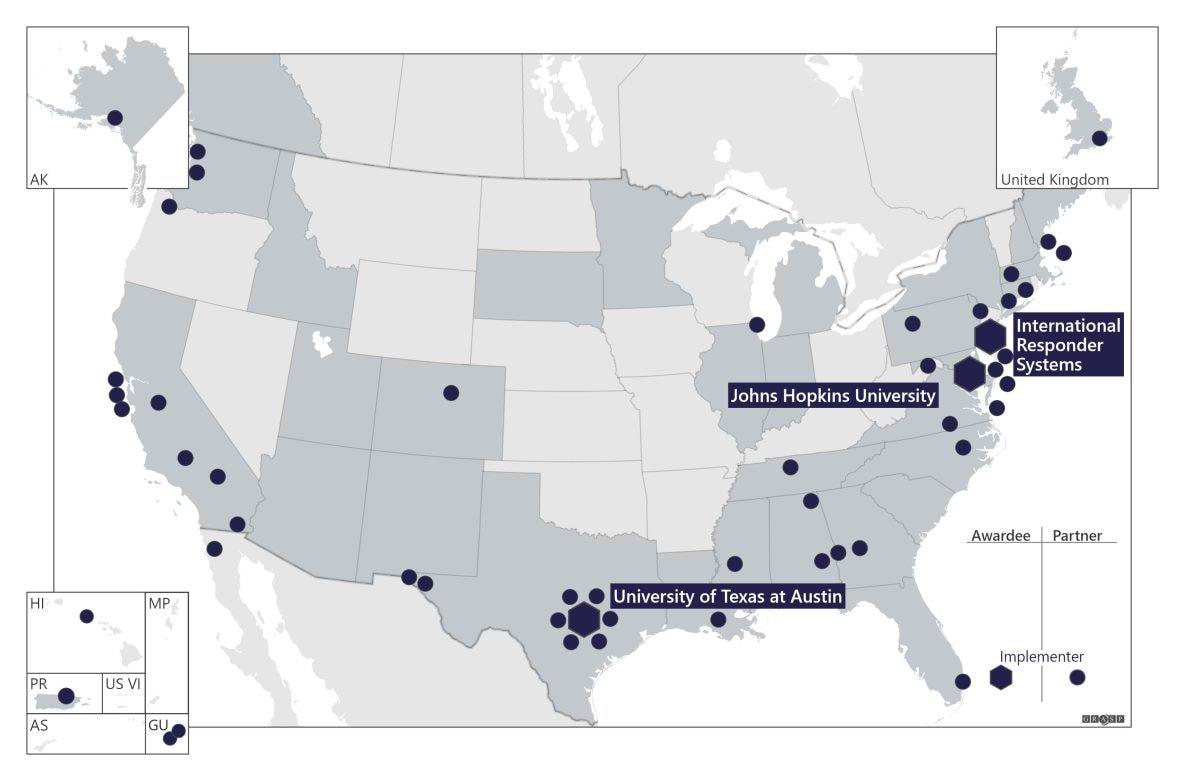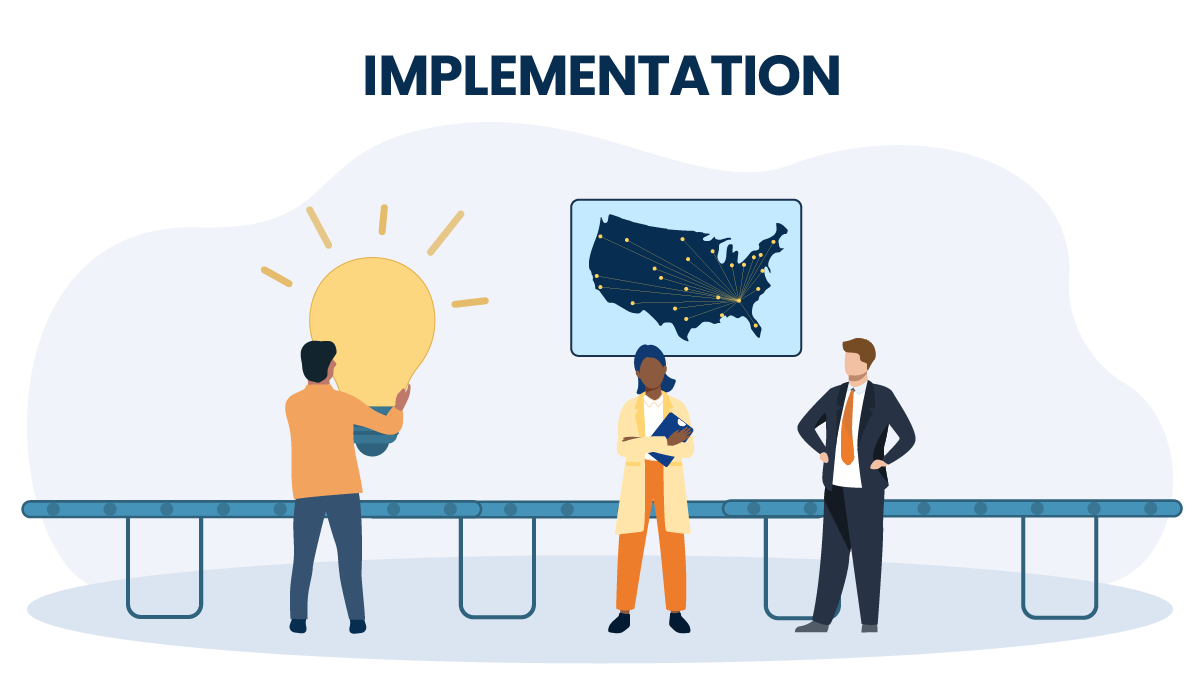Insight Net: Implementers
How can we stop outbreaks before they start?
CDC’s Center for Forecasting and Outbreak Analytics founded Insight Net to help modernize modeling of infectious disease spread to give public health decision-makers relevant information quickly during outbreaks. Insight Net partners called Implementers bring promising new forecasting methods and tools to scale after they have been pilot tested and proven these methods in real-world settings.
This includes:
- Refining outbreak analytics and tools from the integration phase
- Supporting scaling capabilities across regional and national public health jurisdictions
- Partnering with decision makers across jurisdictions and sectors to create tailored, effective real-time solutions for public health emergencies
- Developing practical training in outbreak analytics, modeling, and forecasting for public health professionals
CFA funded the following partners to be Implementers:
- University of Texas – Austin
- Johns Hopkins University
- International Responder Systems

A static image that shows the Insight Net's Implementers.
The University of Texas at Austin has partnered with the University of Massachusetts, Amherst, to establish the epiENGAGE center to assess needs and prioritize projects, implement pilots with partner agencies in Texas and Massachusetts, and scale to STLT jurisdictions nationwide. EpiENGAGE aims to build off their experience with the COVID-19 Forecast Hub to implement a portfolio of high-priority, validated tools to support STLT preparedness and situational awareness and expand their Hubverse toolkit as an international resource.
Who are Insight Net’s Implementers?
International Responder Systems is responsible for implementing new, effective analytical tools and proven approaches for use at the state and local level, where critical public health actions take place. They will deliver an enhanced outbreak analytics diagnostic system to their partners, who include the University of California, Los Angeles; University of California, San Francisco; Jackson State University; Alameda County Public Health; Imperial County Public Health; San Diego County; Pacific Rim Consortium (including California Department of Public Health, Washington State, and Porto Rico); and Primary Diagnostics.
Johns Hopkins University and its collaborators formed the Center for Outbreak Response Innovation (CORI), which will integrate modeling and analytics into public health decision-making for elected officials, state public health departments, large employers, and the public, with an emphasis on communication and resilient, scalable systems and processes. Their partners include the American Meteorological Society, National Governors Association, Alaska Department of Health, North Carolina Department of Health and Human Services, and the Tennessee Department of Health.
The University of Texas at Austin, in partnership with University of Massachusetts, Amherst, is responsible for implementing multi-scale outbreak decision-support tools to expand analytic capabilities. The team is to build strong institutional partnerships across STLT jurisdictions and bolster national readiness for future pathogen threats. Partners include Dallas County Department of Health and Human Services, Northwestern University, University of Georgia, Yale University, Texas Advanced Computing Center, University of Texas at El Paso, London School of Hygiene and Tropical Medicine, Austin Emergency Medical Services, Austin Public Health, El Paso Public Health, Houston Health Department, Capital Area of Texas Regional Advisory Council, Texas Department of State Health Services, Massachusetts Department of Public Health, and the Council of State and Territorial Epidemiologists.
